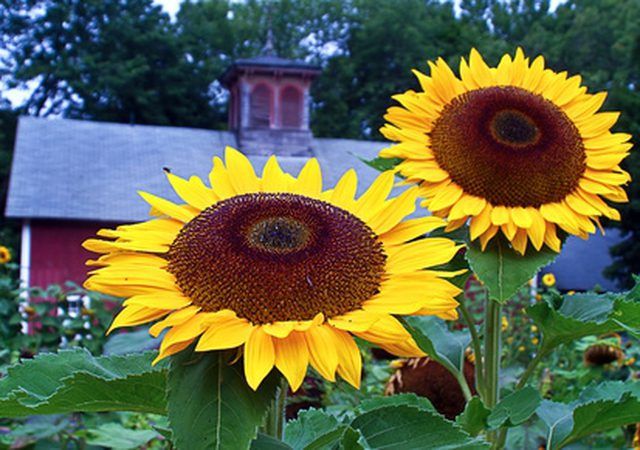Bulbs
Flower Basics
Flower Beds & Specialty Gardens
Flower Garden
Garden Furniture
Garden Gnomes
Garden Seeds
Garden Sheds
Garden Statues
Garden Tools & Supplies
Gardening Basics
Green & Organic
Groundcovers & Vines
Growing Annuals
Growing Basil
Growing Beans
Growing Berries
Growing Blueberries
Growing Cactus
Growing Corn
Growing Cotton
Growing Edibles
Growing Flowers
Growing Garlic
Growing Grapes
Growing Grass
Growing Herbs
Growing Jasmine
Growing Mint
Growing Mushrooms
Orchids
Growing Peanuts
Growing Perennials
Growing Plants
Growing Rosemary
Growing Roses
Growing Strawberries
Growing Sunflowers
Growing Thyme
Growing Tomatoes
Growing Tulips
Growing Vegetables
Herb Basics
Herb Garden
Indoor Growing
Landscaping Basics
Landscaping Patios
Landscaping Plants
Landscaping Shrubs
Landscaping Trees
Landscaping Walks & Pathways
Lawn Basics
Lawn Maintenance
Lawn Mowers
Lawn Ornaments
Lawn Planting
Lawn Tools
Outdoor Growing
Overall Landscape Planning
Pests, Weeds & Problems
Plant Basics
Rock Garden
Rose Garden
Shrubs
Soil
Specialty Gardens
Trees
Vegetable Garden
Yard Maintenance
How to Grow & Sell Sunflower Seeds
How to Grow & Sell Sunflower Seeds. Easy to grow, cheerfully colorful sunflowers may also be a source of income to home gardeners and entrepreneurs. Both the full, mature flower-head and the hundreds of seeds the plant produces are beloved of many birds. Sunflower seeds are a key component in many birdseed mixes, according to the Thomas Jefferson...

Easy to grow, cheerfully colorful sunflowers may also be a source of income to home gardeners and entrepreneurs. Both the full, mature flower-head and the hundreds of seeds the plant produces are beloved of many birds. Sunflower seeds are a key component in many birdseed mixes, according to the Thomas Jefferson Agricultural Institute website. Dried sunflower seeds are also a nutritious portable snack for hikers and campers, and a handy roasted topping for family salads. Good-quality, unroasted sunflower seeds can be dried, packaged and sold as seed, or saved and planted for next year's crop.
Things You'll Need
Garden spade
Well-rotted manure
Hose or watering can
Hoe
Food sale license or permit
Small plastic or paper seed bags
Labels
Permanent marker
Screen
Broiler pan
Card table or cart
Signage
Growing Sunflower Seeds
Prepare your soil by tilling deeply. Plant your sunflower seeds between April and July. Your soil should be weed-free and at least a steady 50 degrees.
Plant your sunflower seeds 1 to 2 inches deep in well-tilled garden soil. Add 1 tablespoon of well-rotted manure to each planting hole.
Thin your sunflower seeds to grow about 8 inches apart after seedlings emerge and show at least two sets of leaves. You can pot or transplant thinned plants to extend your harvest.
Harvest your sunflower seeds when the back of the flower-head is mature and has turned brown. Pick the heads off the stalk. Lay them on a table for easier deseeding.
Dry your sunflower seeds on a piece of screen stretched across a broiler pan. Keep them in a dry, dark spot until you are ready to package the seeds for sale.
Selling Sunflower Seeds
Contact your local extension service for information about regional or local birdseed distributors. Phone or write the distributors to offer your sunflower seeds. Be prepared to describe the type of seed, how you grew it and how you harvested the seed.
Obtain a food sale or vendor's license if you plan to sell your seeds as edibles. You may have to pay a fee to both your state and your county to sell your edible seeds. Your local extension agent can tell you what license you need and how to obtain it.
Package your dried seeds into small plastic or paper bags. Label and price your packaged seeds. Check with your extension agent or with other sunflower seed purveyors in your area to evaluate the going market price.
Set up a small roadside stand in your front yard or on your property. Prepare a sign that's visible from the street advertising your fresh-grown sunflower seeds for sale.
Tips & Warnings
Resist the urge to plant your sunflowers intensively. Thinner stands will produce flower-heads with more seeds. This is a consideration if you plan to sell the seeds.
Keep an eye on your sunflower plants after the backs of the flower-heads turn yellow and before they turn brown. You may find yourself competing with birds for the seed harvest.